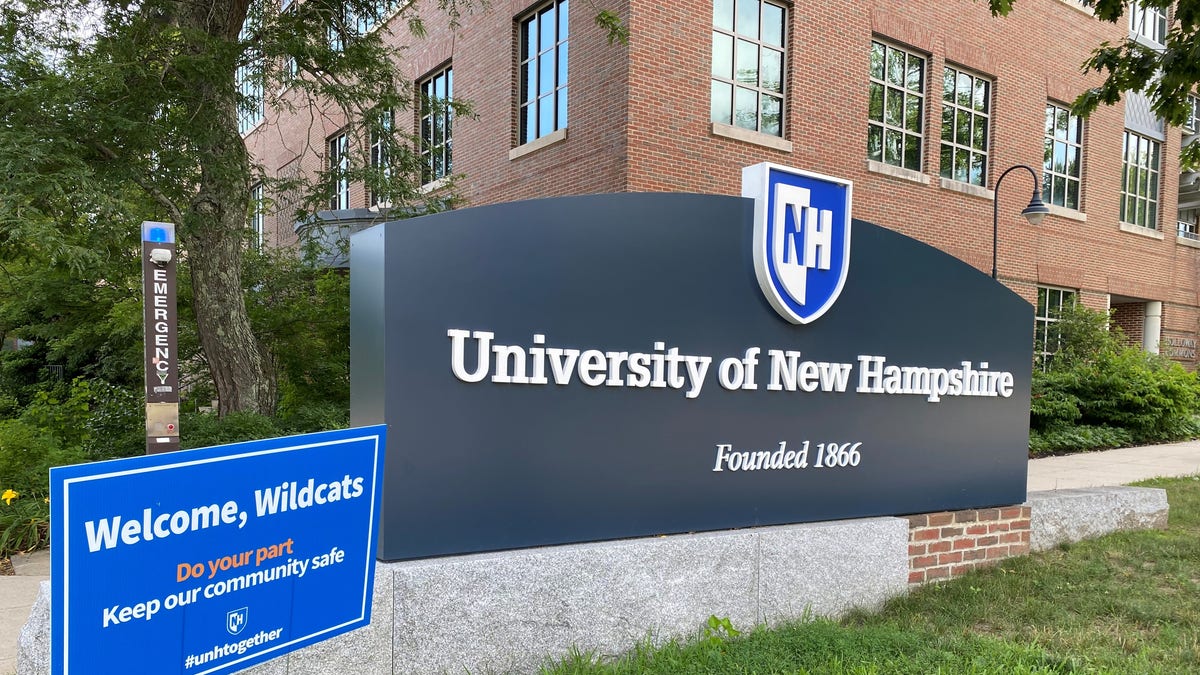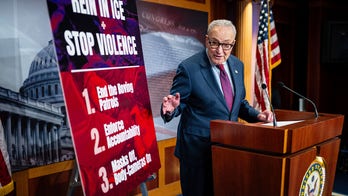Ronna McDaniel says GOP voter registrations have surged
Republican National Committee chair Ronna McDaniel provides updates on the GOP convention amid coronavirus pandemic on ‘Fox and Friends.’
Many major universities in key general election battleground states are getting ready to welcome back students over the next two months amid the coronavirus pandemic. The planning for a return to campus by hundreds of thousands of students will be a trying experience for students, parents, educators and administrators.
But it could also have an visible impact on the presidential race and down-ballot contests in those key swing states.
Many of those students are from out of state. And if some of them stay at home with their parents, they might be inclined to vote in their home state rather than request an absentee ballot and vote in the battleground where they go to school.
Republican National Committee chairwoman Ronna McDaniel recently suggested that the lingering effects of the coronavirus on universities and colleges may benefit the GOP in the general election, by keeping down the population of college students who tend to favor the Democrats over the GOP.
“If these college campuses are vacant in the fall, it really changes some of these battleground states if the students aren’t there,” McDaniel said this month in an interview on "Fox and Friends." “For example, in New Hampshire, you’re not going to be able to do same-day registration and turn out all these college kids. So that’s going to change a lot of these states and the calculus for Democrats in some of their turnout models.”

The University of New Hampshire -- in Durham, N.H. on July 20, 2020 -- is preparing for students to return to campus for the fall semester.
New Hampshire, the smallest of the key general election battleground states, experienced incredibly close contests four years ago. Then-Republican nominee Donald Trump narrowly lost the state’s four electoral votes to Democratic nominee Hillary Clinton by less than 3,000 votes. Clinton’s victory was aided by the more than 23,000 votes she won in Durham (home to the University of New Hampshire, where more half of the undergraduates are from out of state), Hanover (home to Dartmouth College, where most students come from outside New Hampshire), as well as in the college towns of Keene and Plymouth.
The Senate race was even tighter – with Democratic challenger and then-Gov. Maggie Hassan defeating GOP incumbent Sen. Kelly Ayotte by just 1,017 votes.
But it’s not just New Hampshire. Trump narrowly edged out Clinton in the key battlegrounds of Florida, Michigan, Pennsylvania and Wisconsin to win the White House. All four states have large universities with a healthy percentage of out-of-state students who are eligible to vote in the states where they’re attending school.
Longtime Republican strategist and operative Derek Dufresne noted, “Many recent elections in states like New Hampshire have been extremely close and Granite State Democrats have long relied on same day registration and over-performing in liberal college towns to put their candidates over the top.”
Dufresne, a veteran of numerous Senate campaigns, emphasized that “the reality is that the volume of votes they typically rely on from colleges and universities probably will not be there for them this cycle. Chairwoman Ronna McDaniel and the RNC are rightly building sophisticated models and strong operations that are reflective of the political realities we expect to see this November. In a cycle that has already been and will continue to be unlike any other we have seen in recent history, those types of operations are the ones that will be best positioned for victory in November.”
NextGen America -- a liberal grassroots advocacy organization founded by billionaire environmental activist Tom Steyer that fueled the youth vote in 2018, helping the Democrats win back the House of Representatives – acknowledges the task ahead.
“We are facing a big challenge, as a group that has typically relied on in-person voter registration but the great thing about being a youth-led organization is that our staff and volunteers are digital natives who have been coming up with innovative ways to reach out audience online and meet our goals,” NextGen America communications director Heather Greven told Fox News.
Greven noted, “The reality is, school reopening is still up in the air -- and we have months till the voter registration deadlines. The most important thing we can do right now is to ensure students are registered at their current address and prepare them to re-register if they move before the deadlines this fall. Republicans would love to think all they need to do to squash the youth vote is turn away out of state students but they clearly don't understand the size and scope of young voters who don't fit into that bubble.”
The New Hampshire Democratic Party stressed that “because of the pandemic, we have stepped up our online efforts and are engaging students and young people online and through digital organizing. We are also working closely with student groups and leaders to make sure they know where the candidates stand on the issues that matter to them most.”
And Liz Wester, the state party’s coordinated campaign director, said, “We do believe that many college students will vote here, including maybe more who will be staying at home here instead of returning because they know how much is at stake — from taking action on climate change, to raising the minimum wage to affording health care to equality for LGBTQ+ Granite Staters.”
While polls currently indicate Democratic challenger Joe Biden leading President Trump in many of these battleground states, there’s a good chance the race will tighten up as November’s election nears.
New Hampshire, for example, currently leans toward Biden, polls indicate. But UNH Survey Center director Andrew Smith predicted the state’s “likely to be close again.”
“It’s going to be a battleground,” Smith added.














































